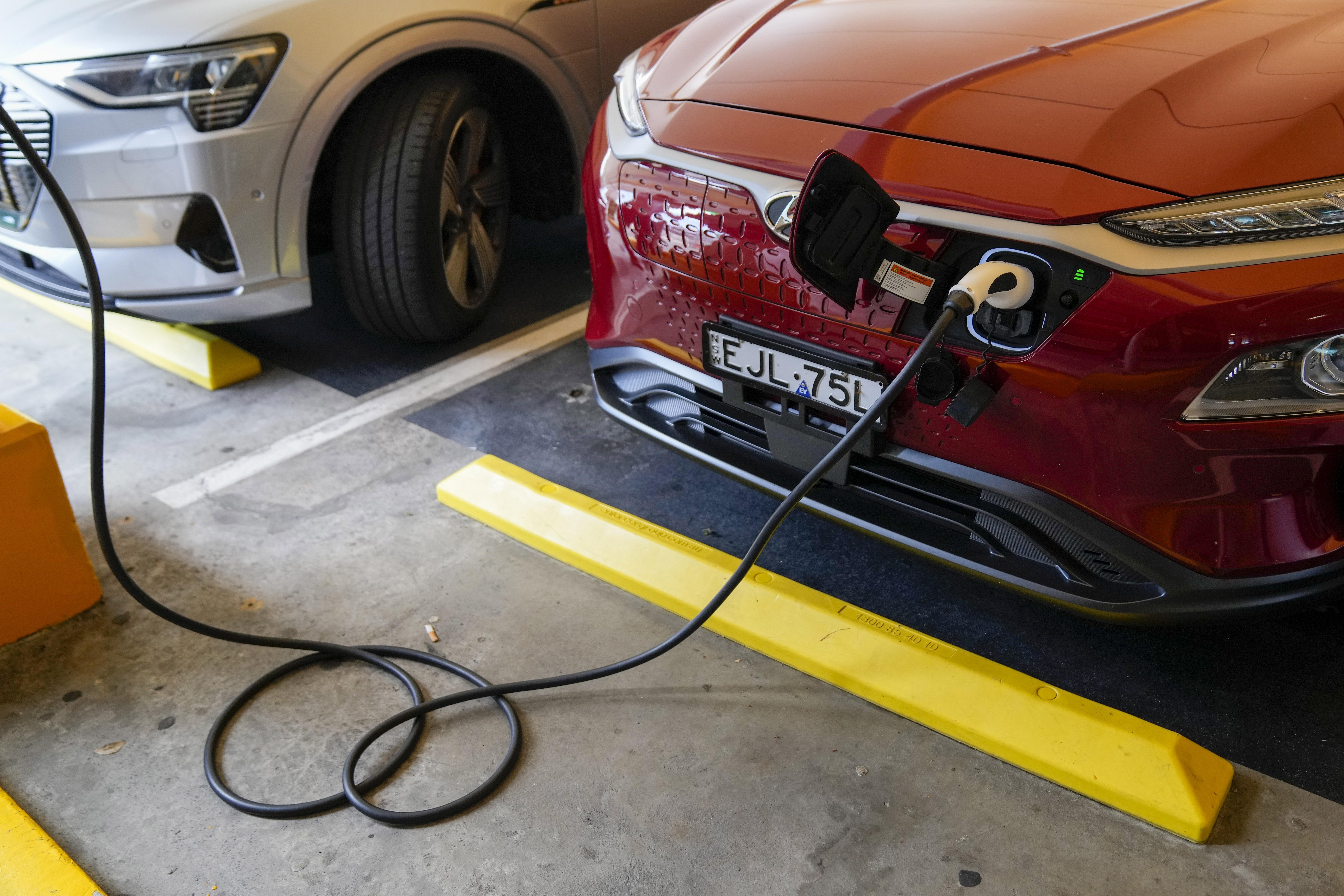 This file photo shows an electric car gets charged at a supermarket carpark in Sydney, Australia, November 9, 2021. (PHOTO / AP)
This file photo shows an electric car gets charged at a supermarket carpark in Sydney, Australia, November 9, 2021. (PHOTO / AP)
CANBERRA – Australians should significantly reduce their reliance on private vehicles in order for the country to play its part in reducing global carbon emissions, a new study has said.
According to the report, which was published by the Climate Council, the portion of trips made by private vehicles in the country should be more than halved from 81 percent to 36 percent by 2030.
The average Australian household currently has two petrol cars. The council envisages a future where one of those has been replaced by an electric vehicle and the other by public and active transport
The Australian government has committed to reducing greenhouse gas emissions by 43 percent from 2005 levels by 2030 but the council argues it should be aiming for a 75 percent reduction target to play its part in reducing global emissions.
In order to achieve the ambitious goal, it said commuters should become more reliant on public transport modes until they increase from the current 14 percent nationally to about 49 percent of trips.
ALSO READ: Heat insurance offers climate change lifeline to poor workers
The average Australian household currently has two petrol cars. The council envisages a future where one of those has been replaced by an electric vehicle and the other by public and active transport.
"If we are to reduce emissions from personal transport really deeply this decade, we need to flip how our transport system works from one that is about moving around cars to one that really prioritizes moving around people," Jennifer Rayner, head of advocacy at the council, was quoted by the Australian Broadcasting Corporation (ABC) on Monday.
ALSO READ: More than half of the world's large lakes are drying up
"That means about halving the amount of trips that are made by car every day, and seeing a three-and-a-half-fold increase in trips by public transport and a threefold increase of active transport, like walking, cycling or skating."
READ MORE: Southern Europe braces summer of drought for climate change
Rayner said surveys have found people want more public transport but that services were not good enough.
She suggested increasing the number of electric bus services as an easy solution.